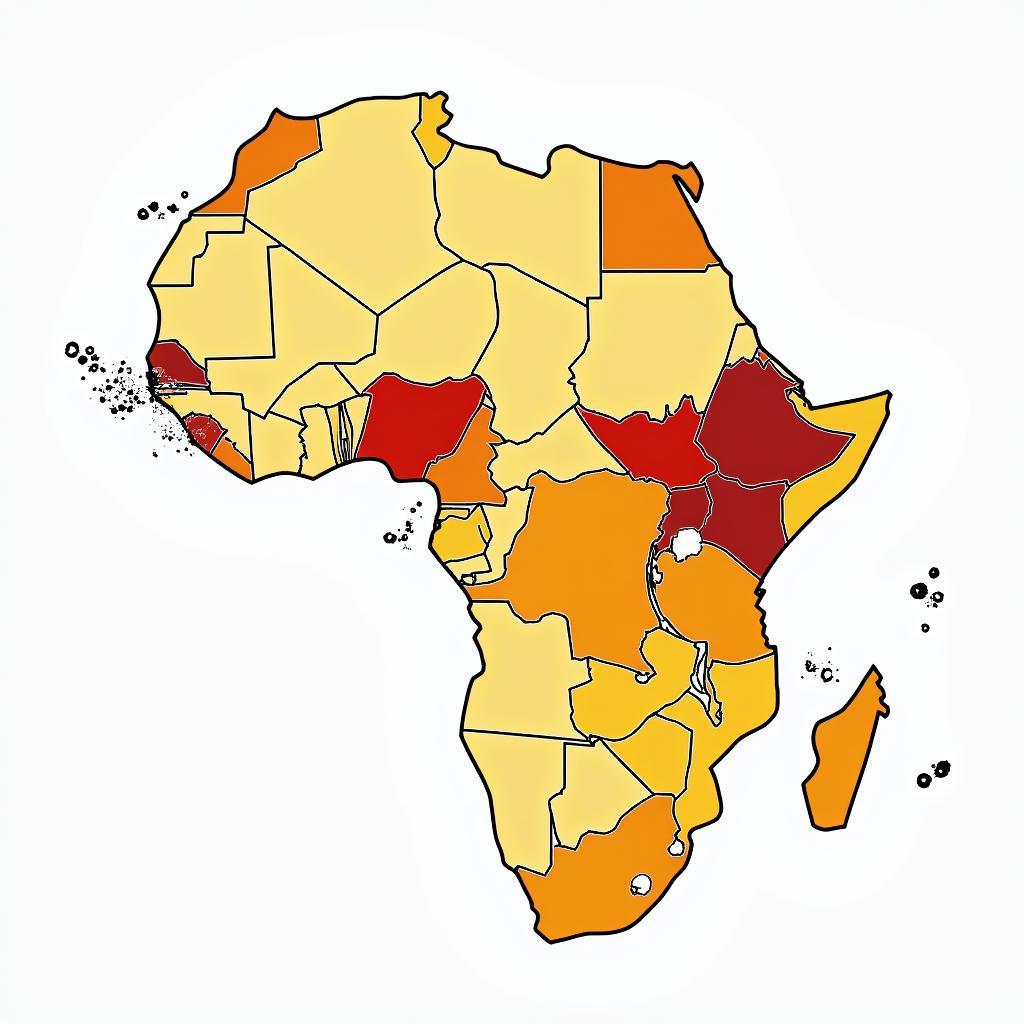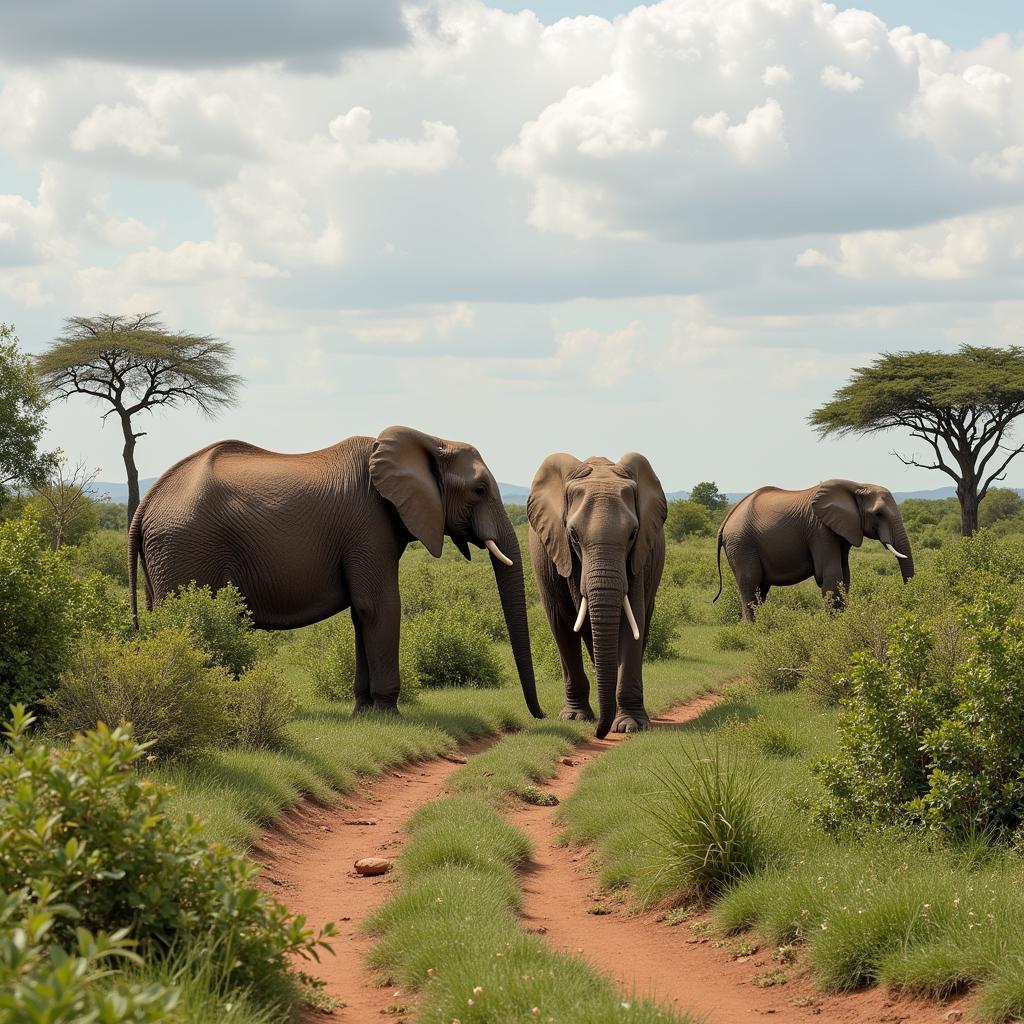Exploring the Diverse Tapestry of African Cultures
The African continent is a vibrant tapestry woven with a rich history, diverse languages, captivating art, and traditions that have evolved over millennia. From the ancient empires of Egypt and Mali to the modern-day nations with their unique identities, Africa’s cultural landscape is an endless source of fascination and inspiration. This article delves into the captivating world of African cultures, exploring their unique characteristics, rich history, and enduring impact on the global stage.
A Journey Through Africa’s Cultural Heartland
Africa is a vast continent with a diverse range of cultures, each with its own fascinating history, customs, and traditions. These cultures are not static, but rather dynamic entities constantly evolving and adapting to the changing world. To truly understand the richness and complexity of African cultures, one must embark on a journey that transcends geographic boundaries and embraces the interconnectedness of different traditions.
The Legacy of Ancient Empires
The African continent boasts a rich history of powerful empires that left an enduring legacy on the cultural landscape. From the majestic pyramids of ancient Egypt to the sophisticated trade networks of the Mali Empire, these empires were centers of learning, innovation, and cultural exchange. They developed intricate social structures, complex belief systems, and sophisticated artistic expressions that continue to inspire and amaze.
“The legacy of these ancient empires is not just about the past, it’s about the present and the future. These cultures provide a roadmap for understanding the interconnectedness of African societies and their enduring impact on the world,” says Dr. Amani Makombe, an anthropologist specializing in African history.
The Tapestry of African Art
African art is a vibrant and diverse expression of cultural identity, ranging from the intricate sculptures of the Yoruba people to the dazzling masks of the Dogon tribe. These art forms are not simply decorative but serve as powerful symbols of community, spirituality, and social order.
“African art is not just beautiful, it’s a window into the soul of the people who created it. It tells stories, reflects beliefs, and connects generations,” explains renowned art historian, Professor Oumou Diallo.
The Rhythms of African Music
Music plays a central role in African life, serving as a means of communication, social cohesion, and spiritual expression. The continent is home to an incredible array of musical traditions, from the polyrhythms of West Africa to the soulful sounds of South African a cappella groups.
“African music is a celebration of life, joy, and the human spirit. It is a powerful force that transcends language barriers and connects people across cultures,” notes renowned musician and composer, Mr. Kofi Ababio.
The Flavors of African Cuisine
African cuisine is a rich and diverse tapestry of flavors, textures, and aromas. From the spicy stews of West Africa to the grilled meats of South Africa, each region offers its own unique culinary traditions that reflect the local ingredients and cultural influences.
“African food is a celebration of the land and its bounty. It’s a testament to the ingenuity and resourcefulness of African people,” states Chef Amina Mbali, a celebrated culinary expert.
The Vibrant Colors of African Fashion
African fashion is a vibrant and dynamic expression of cultural identity. From the intricate beadwork of the Maasai to the bold patterns of the Kente cloth, African fashion reflects the creativity and artistic flair of the continent.
“African fashion is not just about clothing, it’s about storytelling. It’s about expressing our heritage, our pride, and our individuality,” shares fashion designer, Ms. Njeri Maina.
Exploring the Depth of African Cultures
Africa is a continent brimming with cultural diversity, each region offering a unique glimpse into the richness and complexity of African Life. From the ancient pyramids of Egypt to the vibrant markets of Morocco, the continent’s cultural heritage is both mesmerizing and awe-inspiring.
The Importance of Cultural Preservation
As the world becomes increasingly interconnected, it’s crucial to preserve and celebrate the unique cultural traditions of Africa. This involves promoting cultural awareness, fostering intergenerational dialogue, and ensuring that traditional knowledge and practices are passed down to future generations.
The Role of Technology in Cultural Preservation
In the digital age, technology plays a vital role in cultural preservation. Online platforms and social media can be used to share stories, document traditions, and connect people across geographic boundaries. This digital space offers a powerful platform for showcasing the richness and beauty of African cultures.
The Future of African Cultures
As Africa continues to evolve and adapt to the changing world, its cultural landscape will continue to transform. However, the core values of community, resilience, and creativity will remain at the heart of African cultures.
FAQ
Q: What are the main challenges facing African cultures today?
A: Challenges include globalization, urbanization, and the erosion of traditional values.
Q: How can we promote cultural understanding and tolerance?
A: Through education, intercultural dialogue, and celebrating cultural diversity.
Q: How can I learn more about African cultures?
A: Explore museums, attend cultural events, read books, and engage with online resources.
Q: What are some examples of African cultural traditions?
A: Traditional music, dance, storytelling, festivals, and crafts.
Q: What is the significance of African proverbs and sayings?
A: They offer wisdom, guidance, and insight into African values and beliefs.
Conclusion
The African continent is a vibrant tapestry of cultures, each with its own unique history, customs, and traditions. From the ancient empires to the modern-day nations, African cultures are a testament to the ingenuity, resilience, and artistic flair of the people. As we explore the richness and complexity of these diverse cultures, we gain a deeper understanding of the human experience and the interconnectedness of our world.

